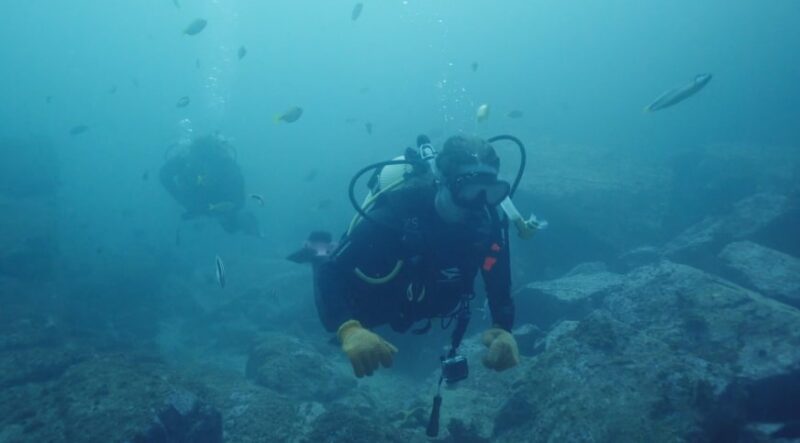In today’s fast-paced and unpredictable world, understanding the nuances of different policies is crucial for protection and peace of mind. This blog post delves into the distinct characteristics of travel and accident insurance, highlighting their differences, coverage details, and how they cater to specific needs.
Whether you’re a frequent traveler, an adventure enthusiast, or simply someone who wants to be well-informed, this guide is tailored for you.
Key Takeaways
- Different Purposes and Coverage: Travel insurance primarily offers protection against travel-related issues like trip cancellations, lost luggage, and medical emergencies during travel. In contrast, accident provides financial support specifically in the event of accidental injuries, regardless of whether the individual is traveling or not.
- Policy Exclusions and Limitations: Both travel and accident insurance have specific exclusions and limitations. For instance, travel insurance often doesn’t cover pre-existing medical conditions or high-risk activities, while accident insurance typically excludes non-accidental injuries and incidents resulting from risky behaviors.
- Importance of Understanding Policy Terms: It’s crucial to thoroughly understand the terms of your insurance policy, including coverage limits, exclusions, and the claims process. This knowledge is key to avoiding surprises during claims and ensuring adequate protection.
- Cost Comparison and Policy Selection: The cost of both travel and accident insurance varies based on several factors, including the extent of coverage and individual risk profiles. Evaluating your personal needs and comparing different policies is essential to find the most cost-effective and comprehensive coverage.
- Strategic Combination of Policies: For comprehensive protection, combining travel and accident insurance can be beneficial, especially for frequent travelers or those engaged in high-risk activities. However, it’s important to avoid overlapping coverages and understand how these policies complement each other to ensure effective and efficient coverage.
Overview Of Travel Insurance

Coverage Overview
-
- Travel insurance typically includes coverage for trip cancellations, medical emergencies, lost luggage, and sometimes, delays. It’s a safety net for unforeseen events that can disrupt your travel plans.
- The key benefit of travel insurance is its comprehensive nature, addressing various issues that might arise during a trip. It’s not just about health but also about the financial investment in your travel.
Purpose and Importance
-
- The main purpose of travel insurance is to minimize the financial risks associated with traveling. These risks can range from minor inconveniences to significant emergencies.
- It’s important for travelers, especially those going abroad, where they might not have the same health insurance coverage as in their home country. Travel insurance provides peace of mind and security.
Accident Insurance

Coverage Overview
-
- This is specifically designed to cover expenses resulting from accidental injuries. This includes medical bills, hospital stays, and sometimes, loss of income.
- Unlike health insurance, accident provides a lump-sum payment to the insured or their beneficiaries in case of specific accidents, rather than covering ongoing health expenses.
Purpose and Importance
-
- The primary goal of accident insurance is to provide financial support in the event of unforeseen injuries. This is crucial for individuals who might face financial hardship due to accidents.
- It’s particularly important for people engaged in high-risk jobs or activities. The insurance helps ensure that an accident doesn’t lead to a major financial crisis.
Key Differences Between
Understanding the differences between travel and accident insurance is vital for making informed decisions. This section will compare and contrast the two.
Scope of Coverage
-
- Travel is broader, covering various aspects of a trip, while accident insurance is focused solely on accidents and their immediate financial impact.
- Travel insurance often includes elements like trip cancellation and loss of baggage, which are not covered by accident insurance.
Applicability and Duration
-
- Travel is typically limited to the duration of a trip and is geographically bound. In contrast, accident insurance is generally not limited by location or time.
- Accidents can be a long-term policy, providing coverage regardless of whether the individual is traveling or at home.
Benefits of Travel Insurance

Travel insurance offers numerous benefits that can make your travel experience worry-free. This section highlights these benefits.
Protection Against Trip Cancellations
-
- One of the major benefits of travel insurance is coverage for trip cancellations or interruptions. This can include reimbursement for non-refundable reservations.
- This coverage is particularly useful for expensive trips where the financial stakes are high, safeguarding your investment against unforeseen events.
Medical Emergency Coverage
-
- Travel can be a lifesaver in the event of a medical emergency abroad, covering expenses that your regular health insurance may not.
- This includes emergency transport, treatment costs, and sometimes, medical evacuation to your home country, which can be extremely costly without insurance.
Benefits of Accident Insurance

Accident plays a vital role in financial planning. This section uncovers the benefits it offers to policyholders.
Financial Security in Case of Accidents
-
- Accident insurance provides a financial cushion, offering lump-sum payments to cover unexpected expenses resulting from an accident.
- This can include medical expenses, rehabilitation costs, and even living expenses if the accident results in temporary disability.
Complementing Health Insurance
-
- Accident insurance can complement your existing health insurance, filling gaps in coverage, especially where high deductibles or co-pays are involved.
- It can provide peace of mind, knowing that you have an extra layer of financial protection against accidental injuries.
Travel Insurance: Policy Exclusions

No policy is without exclusions. This section will discuss common exclusions in travel policies.
Pre-Existing Medical Conditions
-
- Many travel policies do not cover pre-existing medical conditions, which can be a critical consideration for travelers with ongoing health issues.
- It’s important to read the fine print and understand what constitutes a pre-existing condition according to your policy.
High-Risk Activities
-
- Activities deemed high-risk, such as skydiving or scuba diving, may not be covered under standard travel policies.
- Travelers engaging in such activities should seek specialized coverage or ensure their policy includes these activities.
Accident Insurance: Policy Exclusions

Like travel, accident insurance also has certain exclusions. This section will outline these exclusions to help you understand the scope of your policy better.
Limitations on Covered Accidents
-
- Accident typically does not cover injuries resulting from non-accidental reasons, such as illnesses or chronic medical conditions.
- It’s essential to know which types of accidents are covered, as policies might exclude certain activities or scenarios.
Exclusions for Risky Behaviors
-
- Injuries resulting from engaging in risky behaviors or illegal activities are usually not covered under accident insurance policies.
- Understanding these exclusions is crucial, especially if your lifestyle or occupation involves potentially risky activities.
Comparing the Costs

The cost is a critical factor for many. This section compares the costs associated with travel and accident insurance.
Premiums and Coverage for Travel Insurance
-
- Travel insurance premiums vary based on trip cost, duration, and the traveler’s age. More comprehensive policies will generally be more expensive.
- Comparing different policies is essential to find the best balance between cost and coverage, especially for frequent travelers.
Pricing of Accident Insurance Policies
-
- Accident premiums depend on factors like the policyholder’s age, occupation, and the coverage amount.
- These policies can be more affordable than people expect, especially when considering the financial protection they offer.
Claims Process: Travel Insurance
Filing a claim can be a daunting process. This section aims to simplify the claims process for travel insurance.
Steps in Filing a Travel Claim
-
- To file a claim, you typically need to provide documentation, such as medical bills or proof of trip cancellation. It’s crucial to understand the specific requirements of your policy.
- Timeliness is key. Be prompt in notifying your insurer about the claim and adhere to their deadlines for submitting documents.
Common Challenges in Claims
-
- Delays in processing can occur due to incomplete documentation or misunderstandings about the policy coverage.
- Clear communication and thorough documentation are vital for a smooth claims process.
Claims Process: Accident Insurance
The claims process for accident insurance can vary from that of travel insurance. This section outlines what to expect when filing an accident insurance claim.
Procedure for Filing an Accident Claim
-
- After an accident, it’s important to report the incident to your insurance provider as soon as possible. You’ll need to provide evidence of the accident and its resulting expenses.
- The insurer will review the claim against your policy terms to determine coverage and compensation.
Tips for a Successful Claim
-
- Documentation is key. Keep detailed records of all related expenses and medical reports to support your claim.
- Understanding the terms of your policy, such as the definition of an ‘accident’ and coverage limits, can help avoid disputes during the claims process.
Tips for Choosing the Right TI

electing the Right Travel Insurance requires careful consideration. This section provides tips to help you make an informed decision.
Assess Your Travel Needs
-
- Consider the nature of your trip, destination, and activities planned. If you’re engaging in adventure sports, look for policies that cover these specifically.
- For frequent travelers, an annual multi-trip policy might be more cost-effective than purchasing single-trip policies.
Compare Policies and Providers
-
- Don’t just focus on price. Compare coverage details, exclusions, and claim settlement records of different insurers.
- Read reviews and seek recommendations to gauge customer satisfaction with various providers.
Tips for Choosing the Right AI

Choosing the right accident insurance involves understanding your personal and professional risk factors. This section offers guidance on selecting a suitable accident policy.
Evaluate Your Risk Profile
-
- Consider your daily activities and occupation. If your job or hobbies involve physical risks, a more comprehensive accident insurance might be necessary.
- Factor in your financial situation. How would an accident affect your income and savings?
Understand Policy Terms Thoroughly
-
- Pay close attention to what is and isn’t covered. Be particularly mindful of policy exclusions and limitations.
- Look for policies with straightforward, easy-to-understand terms to avoid confusion at the time of a claim.
International Coverage
When traveling abroad, understanding the international coverage of your travel insurance is critical. This section will explore the aspects of international travel insurance coverage.
Coverage in Different Countries
-
- Travel policies vary in their international coverage. Some may have exclusions for certain countries or regions, particularly those with high risks or travel advisories.
- It’s vital to check if your destination is covered and understand the terms, especially regarding medical coverage and evacuation.
Dealing with Emergencies Abroad
-
- A key aspect of travel insurance is how it handles emergencies in foreign countries. This includes access to 24/7 assistance services and direct payment to hospitals.
- Having a clear understanding of these procedures can significantly reduce stress during unforeseen situations while traveling.
Family vs. Individual Policies
Introduction: Choosing between family and individual policies depends on your specific needs. This section compares these two options in both travel and accident insurance.
Family Policies in Travel
-
- Family travel insurance policies can offer a more cost-effective solution for traveling with family, providing coverage for all members under a single premium.
- It’s important to check the extent of coverage for each family member and any age limits or restrictions that might apply.
Individual vs. Family Accident Insurance
-
- Individual accident policies are tailored to the specific needs and risks of the individual, while family policies cover all family members, often at a discounted rate.
- Evaluating the lifestyle and risk factors of each family member is crucial in deciding whether a family or individual policy is more appropriate.
Combining Travel and Accident Insurance: A Strategic Approach
Sometimes, combining travel and accident insurance can provide comprehensive coverage. This section discusses how to strategically combine these policies.
Benefits of Combining Policies
-
- Combining travel and accident can fill coverage gaps, ensuring you’re protected both during your travels and in your everyday life.
- This approach can be particularly beneficial for those who travel frequently or engage in high-risk activities.
Considerations When Combining Policies
-
- Before combining policies, it’s essential to understand the overlaps and exclusions in each policy to avoid paying for redundant coverage.
- Consulting with insurance experts can help you tailor a combined coverage plan that suits your specific needs and lifestyle.
FAQ
Can travel cover trips within my home country?
Yes, some travel insurance policies do cover domestic travel. However, coverage details may vary, so it’s important to check with your provider.
Does accident cover workplace injuries?
Accident insurance typically covers injuries from accidents, which can include workplace incidents. However, specific workplace injuries might be covered under workers’ compensation insurance instead.
Can I get travel insurance if I have a pre-existing medical condition?
It’s possible, but options may be limited. Some insurers offer policies that cover pre-existing conditions with certain stipulations or higher premiums.
Is mental health care covered under travel ?
Coverage for mental health care in travel insurance varies by policy. Some policies may include it, while others might exclude mental health-related issues.
How does age affect the cost of accident?
Generally, the cost of accident insurance increases with age, as older individuals are often perceived to be at higher risk for accidents.
Are natural disasters covered under travel insurance?
Many travel insurance policies do cover trip cancellations or interruptions due to natural disasters, but the specifics can vary between policies.
Can I buy travel insurance after starting my trip?
This depends on the insurer. Some allow you to purchase travel insurance after your trip has begun, but the coverage might have certain limitations.
Conclusion
The final section of this blog post will summarize the key points and guide readers in making an informed insurance choice.
- Recap of Major Differences
- It’s important to remember that travel is designed for risks associated with travel, while accident provides broader coverage for accidents that can occur anywhere.
- Each type has its specific purpose, coverage scope, and limitations, which are crucial in making an informed decision.
- Final Thoughts and Recommendations
- Assess your individual needs, risk factors, and the nature of your travels to determine the right type and level of coverage.
- Remember, the cheapest option isn’t always the best. Look for a balance between cost and coverage, and always read the fine print before making a decision.
